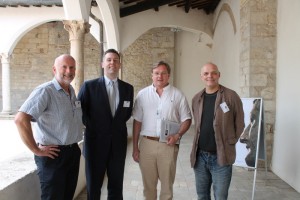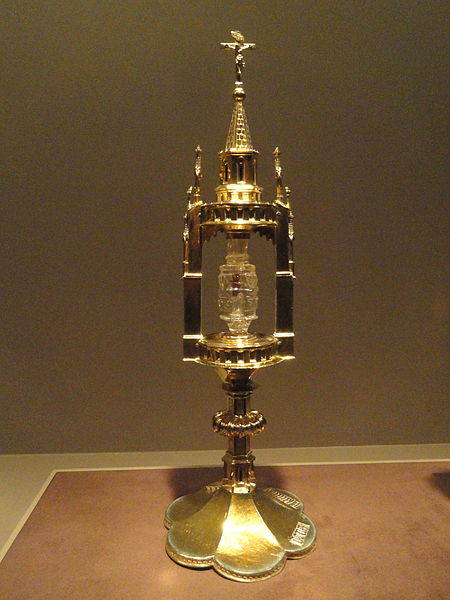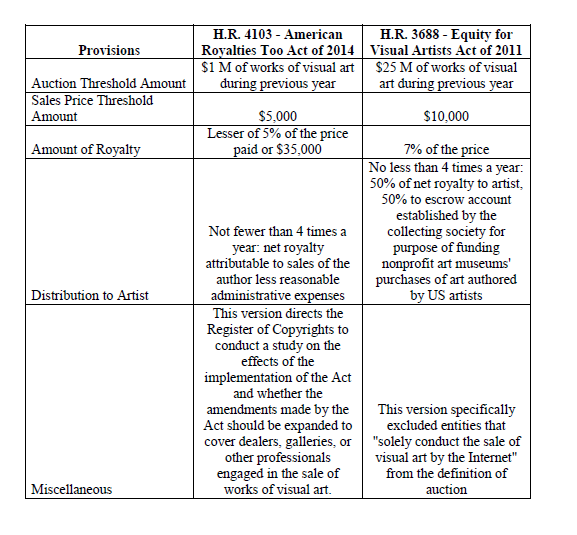The Augsburg prosecutor for the State of Bavaria announced today that in connection with Monday’s agreement with Cornelius Gurlitt, the 1,280 works of art seized from Gurlitt’s apartment in 2012 have been “returned” to Gurlitt. Though it does not appear that the objects have physically changed locations, the state officially lifted the seizure, and now has access to the collection for further provenance research pursuant to the agreement, rather than the compulsory process by which it retrieved them.
Nicholas O'Donnell

Recent Posts
The Gurlitt Deal—Prosecutor Gives Collection Back, Agreement Leaves Questions About Process and Transparency
Topics: German Ministry of Culture, Schwabinger Kunstfund, Cornelius Gurlitt, Bundesministerium für Kultur und Medien, Breslau, Augsburg, Willi Korte, London, Max Liebermann, Claude Monet, Christoph Edel, Gurlitt Collection, Ingrid Begreen-Merkel, Alt Ausee, Hildebrandt Gurlitt, stolen art, State of Bavaria, Reiter am Strand, Salzburg, Restitution, David Toren, Müncher Kunstfund, World War II, Task Force, Süddeutsche Zeitung, Freistaat Bayern, NS-beschlagnahmte Kunst, www.lostart.de, Monika Grütters, Riders on the Beach, Raubkunst, Bayerisches Staatsministerium der Justiz, Bavarian Ministry of Justice, Henri Matisse, Paul Rosenberg
Breakthrough? Gurlitt Signs Agreement with Germany For Continued Research and Commits to Return of Art
Whether Austrian Trove is Included So Far Unmentioned In Reports of Agreement
On the heels of last night’s “60 Minutes” treatment of the Gurlitt saga (which featured Willi Korte and Ingeborg Berggreen-Merkel, two participants at January’s Ersessene Kunst-Der Fall Gurlitt at which I also spoke), news has come today that Cornelius Gurlitt has signed an agreement with the German federal government and the Bavarian Ministry of Justice with respect to the artworks taken from his apartment in 2012. Where recent statements that he intended to return what had been stolen left that outcome entirely to his discretion, he now seems to have committed expressly to some sort of return protocol. The precise details are still unknown.
Topics: German Ministry of Culture, Schwabinger Kunstfund, Cornelius Gurlitt, Bundesministerium für Kultur und Medien, Willi Korte, London, Claude Monet, Christoph Edel, Gurlitt Collection, Ingrid Begreen-Merkel, Alt Ausee, Hildebrandt Gurlitt, stolen art, Salzburg, Restitution, Müncher Kunstfund, Task Force, NS-beschlagnahmte Kunst, www.lostart.de, Monika Grütters, Raubkunst, Bayerisches Staatsministerium der Justiz, Bavarian Ministry of Justice, Henri Matisse, Paul Rosenberg
Foreign Cultural Exchange Jurisdictional Immunity Clarification Act Passes House Judiciary Committee on Voice Vote
Just a week after it was introduced by Steve Chabot (R-OH), the Foreign Cultural Exchange Jurisdictional Immunity Clarification Act (HR 4292) was marked for hearing today. Three members spoke in favor, a voice vote was taken, and bill was referred favorably to the full House.
Topics: Restitution, World War II, Foreign Sovereign Immunities, Immunity from Seizure Act, Foreign Cultural Exchange Jurisdictional Immunity
Foreign Cultural Exchange Jurisdictional Immunity Clarification Act Reintroduced in House of Representatives, Would Ban Use of Exhibition Loan as Basis for Federal Court Jurisdiction
Steve Chabot (R-OH) has reintroduced the Foreign Cultural Exchange Jurisdictional Immunity Clarification Act (H.R. 4292), after a previous attempt to amend the Foreign Sovereign Immunities Act with regard to the loan of cultural objects failed to become law in 2012. The text of the March 25, 2014 bill is identical to the version that passed in the House in 2012. Its co-sponsors are John Conyers (D-MI) and Bob Goodlatte (R-VA), and it has been referred to the House Judiciary Committee.
Topics: Cornelius Gurlitt, Malewicz v. City of Amsterdam, Girolamo Romano, Gurlitt Collection, 22 U.S.C. § 2459, Christ Carrying the Cross Dragged by a Rogue, 517 F.Supp.2d 322, FSIA, Restitution, David Toren, 19 U.S.C. § 1595a, Steve Chabot, Orrin Hatch, House Judiciary Committee, 28 U.S.C. § 1605(a)(2), 28 U.S.C. § 1605(a)(3), Senate Bill 2212, World War II, IFSA, Foreign Sovereign Immunities, Altmann v. Republic of Austria, Portrait of Wally, John Conyers, Immunity from Seizure Act, Dianne Feinstein Foreign Sovereign Immunities Act, Federal Republic of Germany, 28 U.S.C. § 1605, H.R. 4292, Foreign Cultural Exchange Jurisdictional Immunity
Call for Papers and 6th Annual ARCA Interdisciplinary Art Crime Conference, June 28-29, 2014
It was my great privilege last year to speak at the 5th Annual Art Crime Conference, hosted by the Association for Research into Crimes Against Art (ARCA). The conference, in Amelia, Italy, annually draws experts in varied fields of law, cultural property, archaeology, law enforcement, and more. It is also held in one of the most spectacular venues I have ever seen, a rocky outcropping , with a medieval Italian city on top of a Roman-era settlement (complete with a cistern at the top of the hill).
Topics: Interdisciplnary Art Crime Conference, Association for Research into Crimes Against Art, Events, Amelia, ARCA, Italy
Gurlitt "Wants" to Return “All Pictures Stolen or Looted from Jewish Possession”—But Stolen According to Whom?
Christoph Edel, lawyer and guardian for Cornelius Gurlitt, told the Süddeutsche Zeitung today that his client wants to return “all pictures stolen or looted from Jewish possession.” Although this has set Twitter and the Internet ablaze with the news, the statement deserves careful scrutiny in light of Gurlitt’s strategy over the last two months. The likeliest meaning is that Gurlitt intends to return those works that he believes were stolen from Jews—a total he himself put at less than three percent of the 1,280 works found in his apartment, over 900 of which the Scwabinger Task Force has declared to be suspect. Note too that a slight mistranslation has already gotten into circulation. Whereas Edel told the SZ that Gurlitt "wants" to return those paintings, the German conjugation of want (will) was cited as a statement that he will (in English) return them. Not so fast, as they say.
Topics: Hildebrand Gurlitt, Cornelius Gurlitt, NDR, www.Gurlitt.Info, Christoph Edel, Gurlitt Collection, WDR, Sitting Woman, Henie-Onstad Museum, Salzburg, Restitution, Süddeutsche Zeitung, Henri Matisse, Paul Rosenberg
Limbach Advisory Commission Recommends Against German Restitution of “Guelph Treasure,” Focuses on Terms of 1929 Agreement for Intended Sale
One of the issues exposed and exacerbated by the ongoing Gurlitt collection stalemate is the question of Germany’s restitution procedures with respect to art. As the Bavarian legislative proposal to abolish the statute of limitations for claims against bad-faith acquirers is considered by the Bundestag, the “German Advisory Commission for the Return of Cultural Property Seized as a Result of Nazi Persecution, Especially Jewish Property” has issued a decision over what has become known as the “Guelph Treasure” (Welfenschatz) in the collection of the Stiftung Preussischer Kulturbesitz (SPK), the Prussian Cultural Heritage Foundation. The March 20, 2014 opinion (available, so far as I know, only in German at this point at www.lostart.de) underscores the issues around claims of sales under duress, and the appropriate present-day procedural remedy. Readers should also brush up on their medieval German history to keep up.
Topics: Holy Roman Emperor Otto IV, German Supreme Commercial Court, Holy Roman Empire, Bundeshandelsgericht, German Supreme Constitutional Court, Z.M. Hackenbroch, Karl Blechen, Duchy of Brunswick and Lüneburg, Niedersachsen, Karl Ernst Baumann, Act of State, Kingdom of Hanover. Königreich Hannover, Dr Alexander Lewin, Prussia, Lower Saxony, Anselm Feuerbach, Gurlitt Collection, Foreign Sovereign Immunities Act, Preussen, Hans Sachs, German Advisory Commission for the Return of Cultu, Hessen, Fogg Art Museum, Congress of Vienna, Julius and Clara Freund, Kurhannover, Dresdner Bank, Hermann Goring, Austrian Supreme Court, Johann J. August von der Embde, House of Welf, Stiftung Preussischer Kulturbesitz, Wilhelm Leibl, Portrait of Amalie Zuckerkandl, Braunschweig-Lüneburg, Harvard, Portrait der Familie von Dithfurth, Gurlitt, Restitution, George I, J.S. Goldschmidt, World War II, Peasant Girl without a Hat and with a White Headcl, Queen Victoria, Prussian Cultural Heritage Foundation, Art Institute of Chicago, Kurfürsten, Jutta Limbach, www.lostart.de, Soviet Union, Gustav Klimt, Bundesverfassungsgericht, Welfenschatz, Limbach Commission, I. Rosenbaum, Electors
Resale Royalties Redux: the “American Royalties Too Act”
Although there are no definitive signs yet of likely change, the question of secondary royalties for visual artists remains far from resolved. The most comprehensive effort to date, the California Resale Royalties Act was declared unconstitutional in 2012 by the U.S. District Court for the Central District of California, in lawsuit brought by Chuck Close and others against Christie’s, eBay, and Sotheby’s. That decision is on appeal in the Ninth Circuit.
Topics: Equity for Visual Artists Act of 2011, Resale Royalties, American Royalties Too Act, Chuck Close, Resale Royalty, Jerrold Nadler, Christie's, Tammy Baldwin, California Resale Royalties Act, Copyright, United States Copyright Office, Sotheby's, eBay
UPDATE Ninth Circuit Won't Rehear Denial of Stay for Google in "Innocence of Muslims" Case
Just two days after the parties submitted briefing (including the revelation that Cindy Lee Garcia's registration request had been rejected by the U.S. Copyright Office) on a Ninth Circuit judge's sua sponte request for a vote on whether to rehear the denial of a stay of the Court's February 26, 2014 decision finding a likelihood that Garcia had a copyrightable performance in "Innocence of Muslims," the Court has voted not to reconsider that denial, and the ruling stands in force for now. This decision only affects Google's request not to be required to take down all copies of the video from YouTube while the appeal is pending, a take down that it will now have to continue or be completed. The decision offers no rationale, other than that a majority of the court voted not to stay the matter.
Topics: sua sponte, U.S. Copyright Office, Innocence of Muslims, Copyright, Cindy Lee Garcia, Google
Video Interview: Discussing the Ninth Circuit's 'Innocence of Muslims' Ruling with LXBN TV
Following up on my recent coverage of Garcia v. Google, I had the opportunity to discuss the suit with Colin O'Keefe of LXBN. In the brief video interview, I explain the Ninth Circuit's initial ruling and why it could prove quite impactful.
Topics: Innocence of Muslims, Garcia v. Google, Copyright, Colin O'Keefe, Ninth Circuit





